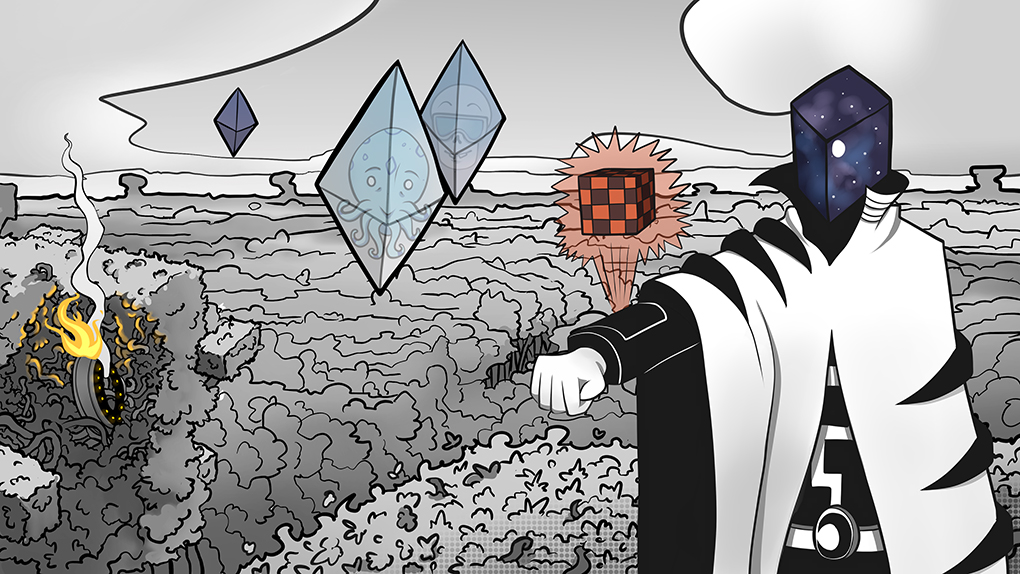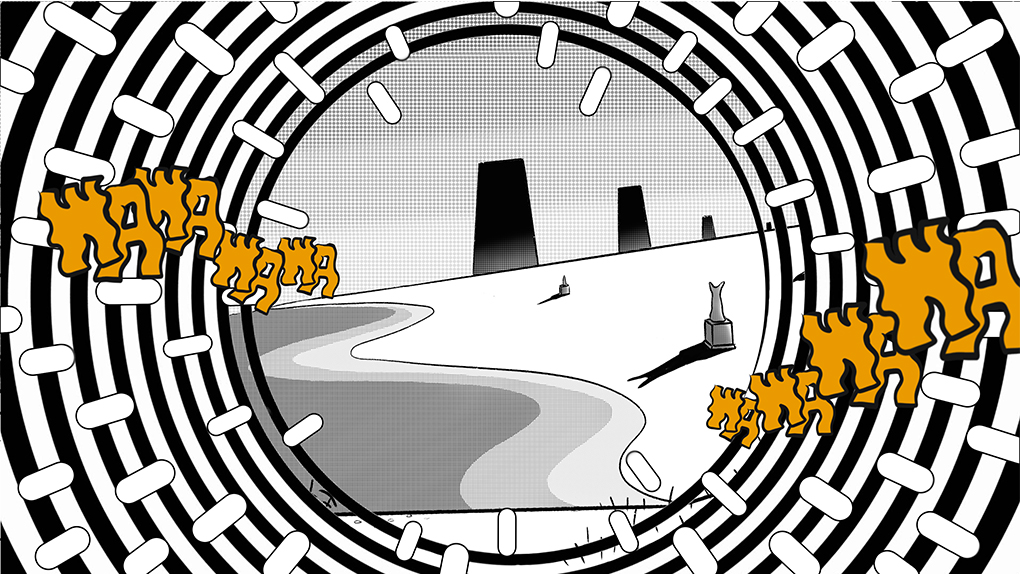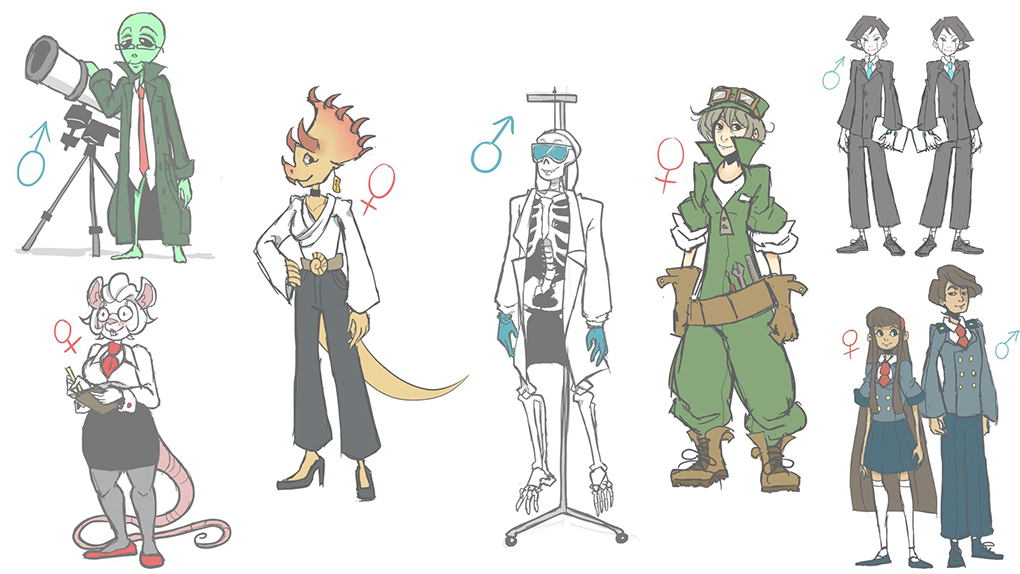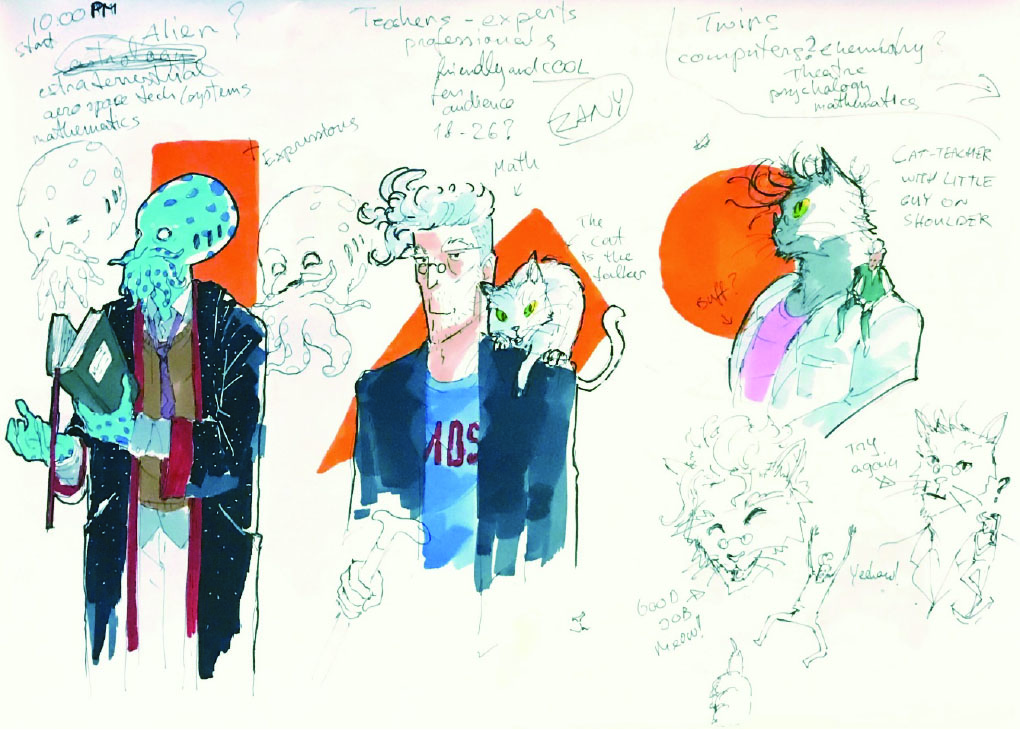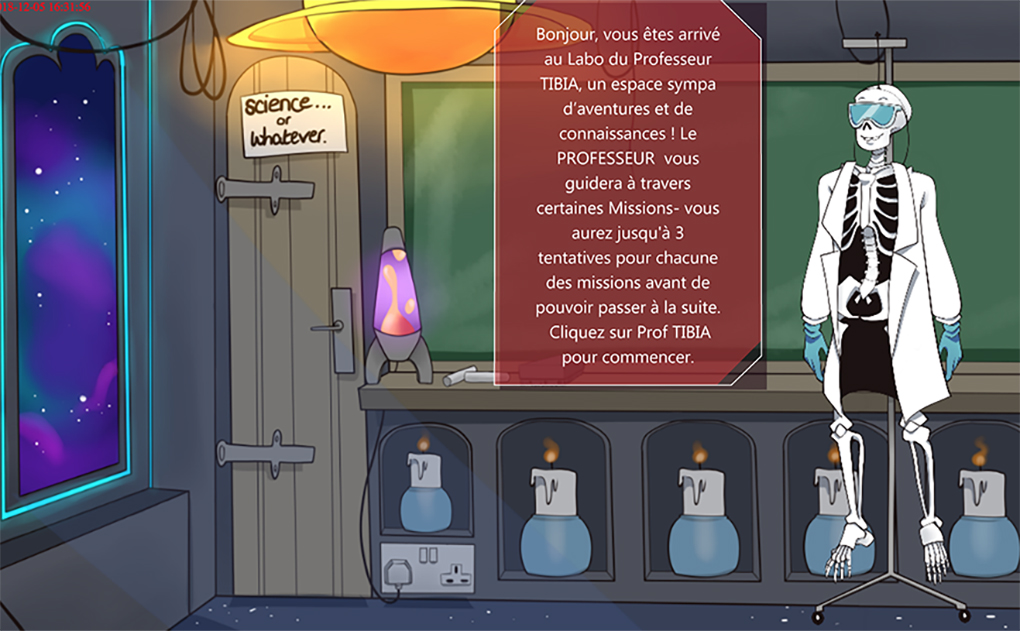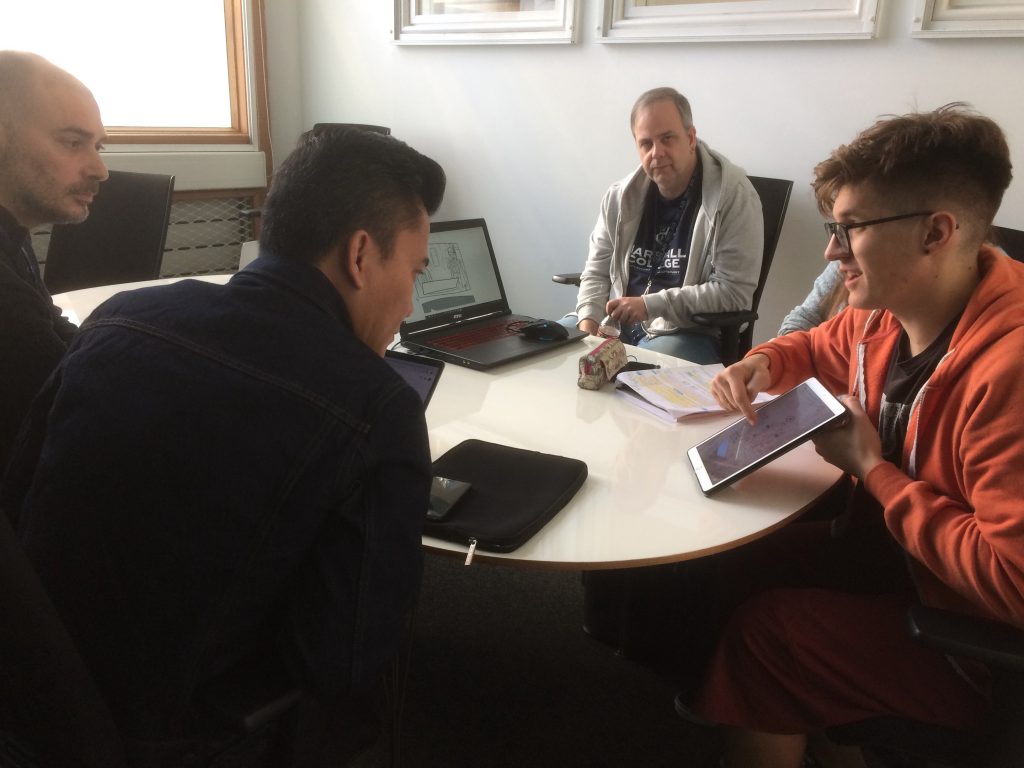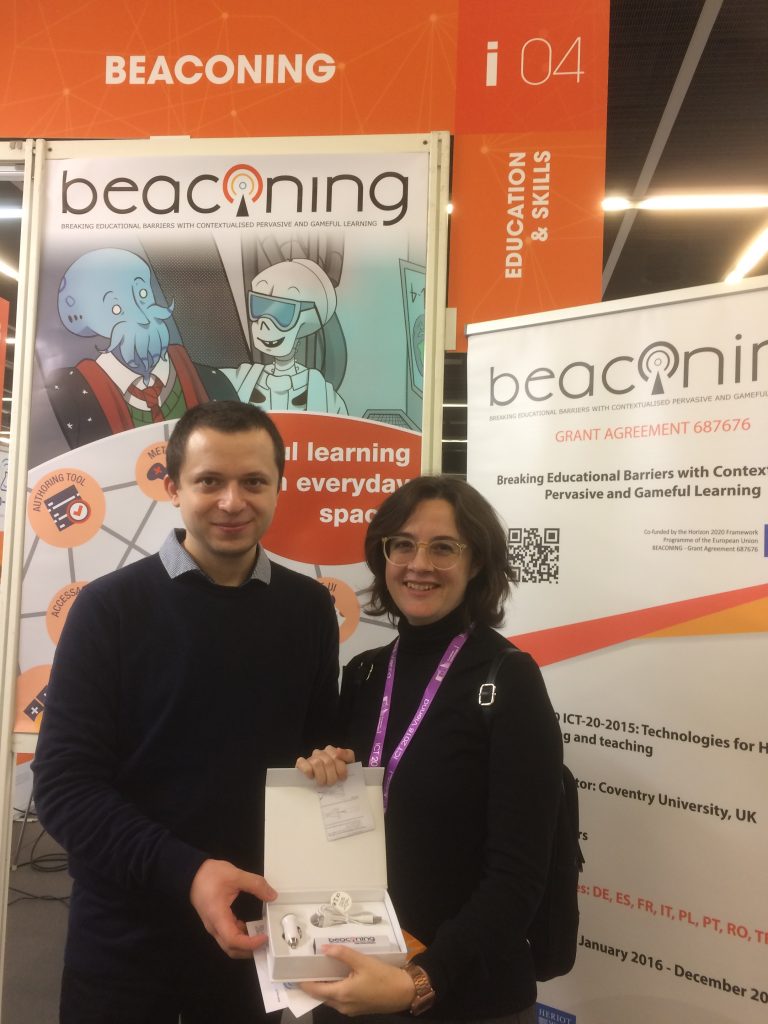The Students Behind Beaconing
This week, staff at the lab were pleased to see that the Beaconing Project has been named as a finalist in the 2019 Gamification Awards in the Software category. Beaconing is a digital authoring tool which enables educators to develop desktop and location-based learning experiences using narratives and mini games. There have been a lot of great outcomes from this project, and we were proud to be a part of it.
However, the project wouldn’t have been the same without the help of our 15 project partners across Europe as well as fresh ideas and terrific artwork from our Student Activators (Coventry University students hired to assist with specific projects).
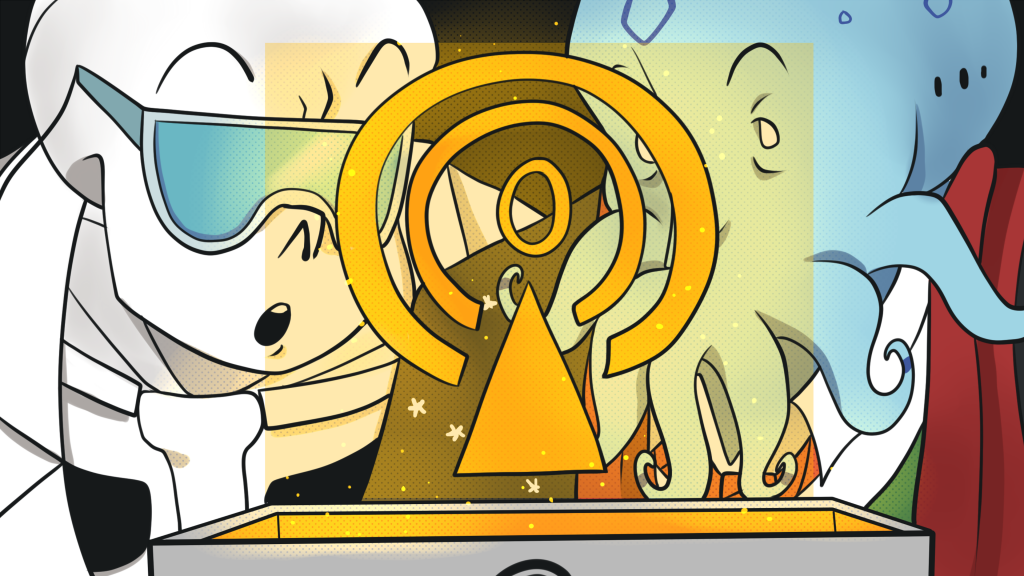
How students can shape an international project
Jackie Calderwood, a researcher here at the DMLL worked closely with our activators Rachel Till and Vytautas Vasiliauskas to develop artwork for the Beaconing platform. Their brief was to come up with character artwork and scenarios for various types of meta-game narratives (the overall story within which educational mini games are encountered) for use in the platform. This consisted of three narratives: character-guided, linear, and branching. From very early on in the project, Rachel and Vytautas were involved in character creation, storyboarding and developing the artwork itself.
Involvement with Beaconing offered the students a chance to gain experience working across borders and disciplines to collaborate on a big ‘real-world’ innovation project. The students took part in regular briefings with DMLL researchers. The creative ideas generated had to compromise to constraints of the technical platform, and also helped shape the development of new features within the application. While the work wasn’t always smooth sailing (we all had to work as a team to improve our communication and manage creative differences), the result was a series of meta-game narratives with highly engaging aesthetics and illustrations which have enriched this comprehensive authoring tool and engaged teachers and students in the 6000+ strong Beaconing pilot. The characters created by our students have been used to promote the project online and at high profile events in London, Vienna and at the European Parliament in Brussels.
Expanding opportunities after Beaconing
In addition to feeling generally positive about the experience, the students reported feeling more professional, having gained valuable skills in time management, collaboration, and consolidating the creative process.
After the project, Jackie saw a call for papers from the Avanca Conference, an arts and communication conference which takes place annually alongside a film festival in Avanca, Portugal. She recognised this as a good opportunity to extend Rachel’s and Vytautas’ experience even further by offering them a chance to coauthor and present a paper about their involvement with Beaconing.
The three of them worked together to create a paper which captured their experience and takeaways. It’s their hope that other students and educators will see the potential in educator-learner collaborations for projects that extend beyond the scope of the classroom.
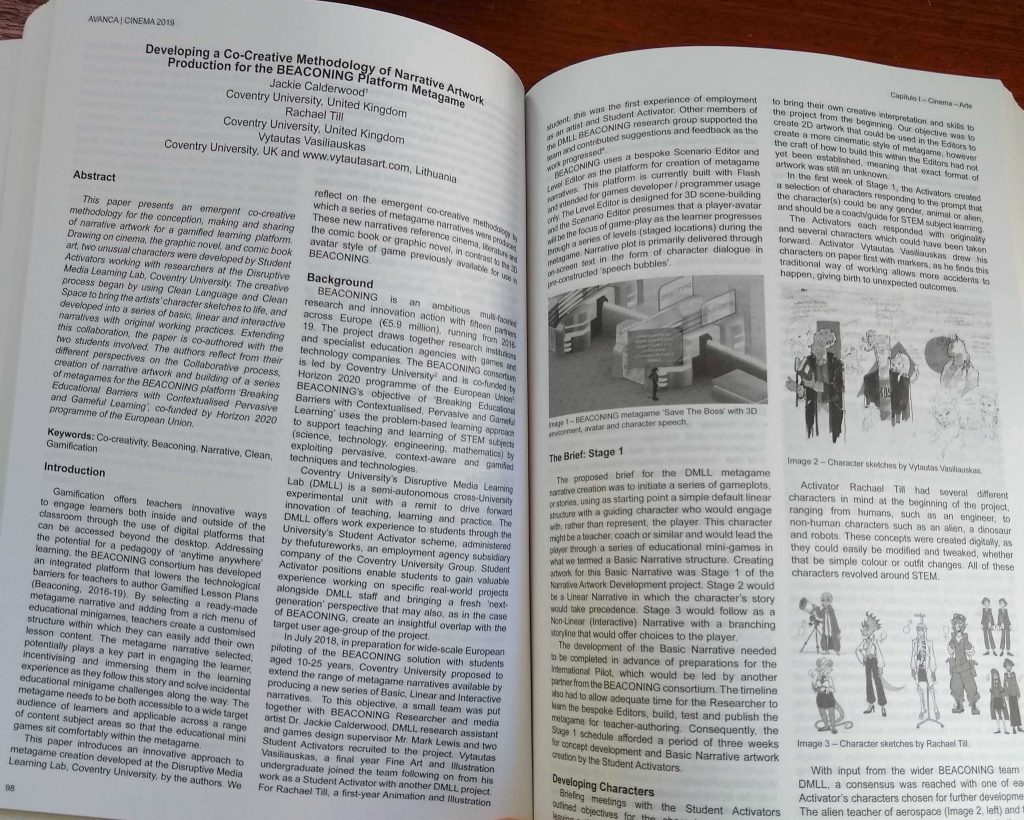
While Rachel and Vytautas weren’t able to attend the conference in the end, Jackie presented their finished paper, which was very well received.
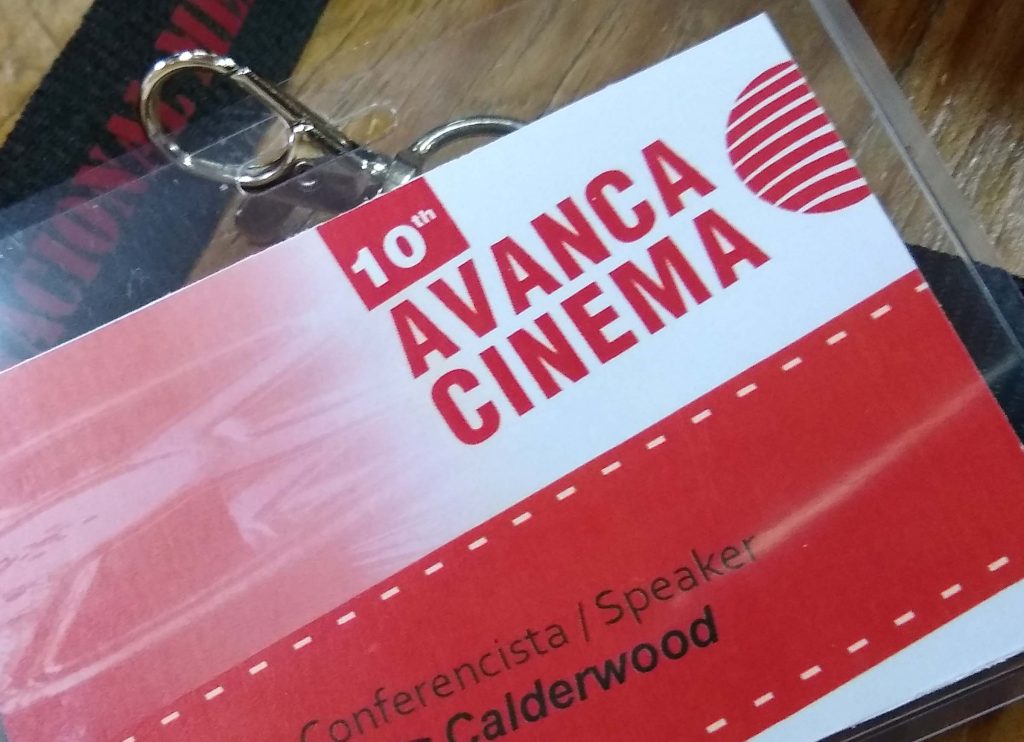
In closing
At the DMLL, we have the benefit of working directly with Coventry students through our Add+Vantage modules, Digital Leaders Programme and through the project-based work with student activators. We’ve learned firsthand that working directly with students broadens and enriches what we do, and this approach of co-collaboration is something we’d suggest any higher education educator or researcher consider implementing in their next big project.
If you’d be interested in having a conversation with us about how you might get students involved in your work, don’t hesitate to get in touch at dmll@coventry.ac.uk

